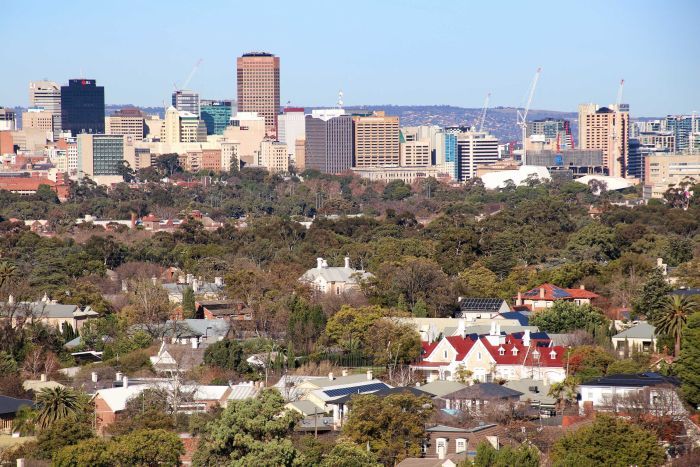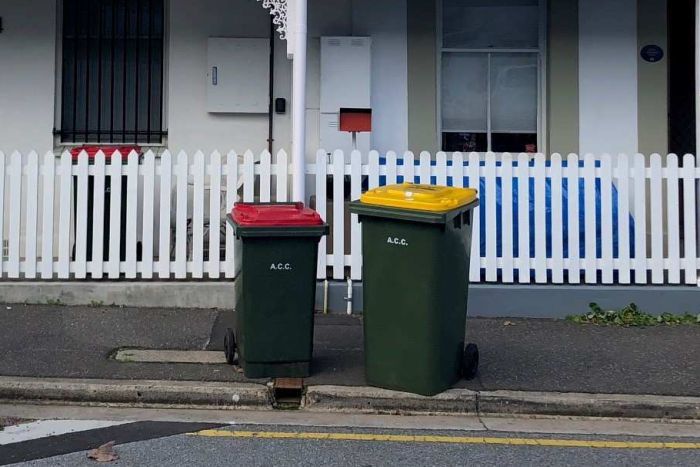
Why is closing a land tax loophole so controversial?
Posted

Photo:
Land tax applies to most properties apart from a person’s home or farm. (ABC News: Chris Moon)
After a furious backlash from supporters and donors, South Australia’s Liberal Government could rethink aspects of its controversial land tax measures flagged in last month’s budget.
Key points:
- SA land tax rates will go down and the minimum threshold will increase next July
- A loophole allowing investors to split properties to reduce their tax will be closed
- The Property Council says its modelling shows it will have a much larger impact than the Government says
The Government has announced plans to crack down on a legal loophole which allows owners of multiple homes to pay less tax.
Currently, people with properties of the same value pay different amounts of tax depending on their ownership arrangements — a situation Premier Steven Marshall said was “indefensible”.
The Government wants to impose a crackdown on the practice known as “land tax aggregation” in which property ownership is split between different businesses or trusts.
It estimates doing so would raise an extra $40 million per year starting in 2020.
But not everyone is backing the idea — including some of the party’s own MPs, as well as a powerful lobby group: the state’s Property Council.
How does land tax work?
Land tax is charged on the value of the properties a person owns, apart from their own homes, farms and some other exemptions.

Photo:
Premier Steven Marshall and Treasurer Rob Lucas at the State Budget lock-up. (ABC Radio Adelaide: Malcolm Sutton)
In South Australia, the tax comes into effect if you own properties worth more than $391,000.
The percentage of tax increases as the value of properties increase, up to 3.7 per cent for properties worth more than $1.3 million.
From July 1, 2020, the minimum threshold is increasing to $450,000 — as promised before last year’s state election — in a measure designed as a tax cut.
This will decrease land tax revenue by about $50 million per year, according to state budget papers.
So what’s the problem?
To offset that decrease, the Government has proposed a crackdown on land tax aggregation.
He estimates the change will bring in $40 million each year from 2020, negating some of the revenue decrease from lower tax rates.
But the Property Council said its own internal modelling showed that it would actually increase revenue by up to $100 million per year.
“Any suggestion it will be as low as $40 million we think is nonsense — it could be much more than that,” the council’s SA executive director, Daniel Gannon said.
Until now, investors have legally been allowed to split their properties to reduce their land tax rates, since land tax increases in line with property values.
Getting treated as a single property owner — instead of spreading ownership across multiple businesses and trusts — could substantially increase some people’s land tax bills.
Mr Gannon, who worked as the Premier’s media and communications director until 2014, said it could increase the land tax for a hypothetical couple owning three average-value residential properties from $1,100 to $21,000.
“The property sector will continue to fight for a fair go on behalf of mum and dad but also institutional property investors,” Mr Gannon said.
“The last thing we want to see is a destructive change like this take place, particularly in an established market.”
Will more people win or lose?
The Premier said it was “indefensible” that two people owning $7 million in properties could face different land tax bills according to their ownership arrangements.
He said his Government wanted “genuine reform”.
“We want lower land tax but we’ve got to fix up some of these issues with regards to the way that it is applied,” Mr Marshall said.
“There will be some people who will be adversely affected, but overall there will be far more beneficiaries of the system that we will be providing — lower land tax for businesses, for households, for investors in South Australia.”
The Opposition has not said if it will support the measure.
What happens next?
The Premier met with the Property Council and Business SA on his first day back from holidays on Monday.
The issue was discussed at a Liberal partyroom meeting at Parliament House on Monday night.
A number of Government backbenchers are understood to have serious reservations.
Liberal MP Sam Duluk denied there was “anger floating around”.
“Not so much anger, maybe concern, but more than anything, a chance to have a chat,” he said.
Mr Marshall said Treasury would get “independent analysis work done” on the Property Council’s figures and compare the figures with its own modelling.
Topics:
tax,
business-economics-and-finance,


